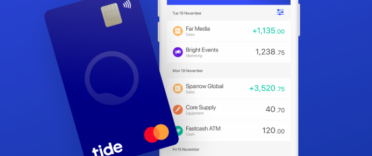 One of the first steps in growing a business or starting a new one is thinking about where the funding is going to come from. If you are planning on getting a business loan, it is important to know whether or not you are eligible to apply, or if you will be able to get finance for the type of business you currently run or want to start. Keep in mind that not every business can get a loan. In this article we will explain who can apply for a business loan, what documentation and information you will need to provide, and what factors can affect whether you are accepted or rejected.
One of the first steps in growing a business or starting a new one is thinking about where the funding is going to come from. If you are planning on getting a business loan, it is important to know whether or not you are eligible to apply, or if you will be able to get finance for the type of business you currently run or want to start. Keep in mind that not every business can get a loan. In this article we will explain who can apply for a business loan, what documentation and information you will need to provide, and what factors can affect whether you are accepted or rejected.
What is business loan eligibility?
In order to apply for a business loan in the UK, you will need to be at least 18-years-old, be a UK resident, hold a UK bank account and run – or plan to run – a business based in the UK. The lender you choose to apply with will have its own additional criteria, but these three points are usually standard across major business loan providers.
Other criteria that you may need to comply with will often focus on you and your business’s financial circumstances and credit history. However, these factors are more likely to influence whether or not you are accepted for a business loan, rather than if you are eligible to apply in the first place.
When it comes to eligibility, your status as a UK resident will be important. If you are living in the UK on a visa, you may be restricted in what work you are able to undertake, including running a business. You are likely to be ineligible for a business loan in the UK if you have a tier 1 or tier 2 visa. Anyone on a tier 4 student visa or a temporary worker (tier 5) visa may also find they are ineligible for most business loans. Working on an Overseas Domestic Worker visa or a Representative of an Overseas Business visa may rule you out too.
Living in the UK on select other visas will mean you can apply for a business loan, though you will need the loan term to end at least six months before the visa expires.
If you need more information on the basics of a business loan, read our article ‘What is a business loan?’.
Who can get a business loan?
On top of the essential boxes you will need to tick before you even apply, there are additional factors that will make your business loan application more likely to succeed. Here are some examples:
- Credit score: The credit score of the business and any individual applying is an important factor in a business loan application. Lenders will usually look at the business credit report and any relevant personal credit reports to establish the creditworthiness of the company.
- Business age: Some providers targeting start-ups or new businesses will consider companies that have been trading for less than a year, but most banks and major lenders will require six months to two years of business. We explain startup loans in our article 'What are business startup loans?'.
- Revenue: The more your business earns, the more likely it is to qualify for a loan. Lenders want borrowers to be able to repay their debt, and a business with strong revenue streams will seem more capable of affording the monthly repayments. If significantly more cash is coming in than going out, your business is in a good position to get a loan.
- Expenses: A lender will also want to know how much money your business plans to spend or is committed to spending. A business with low expenses is more likely to be approved for a business loan than a company committed to a big payout every month.
- Available credit ratio: If your business already has a lot of available credit to hand, a lender may be concerned about offering more.
- Assets: If you are applying for a secured loan, your lender will want to value the asset you plan to use as collateral. This is what will be sold to repay the debt if the business defaults on the loan, so its value will determine how much the business can borrow.
What information will you need to provide?
There will be questions that a business needs to answer as part of the business loan application process. Most of these are relatively straightforward, but it is important to have the correct details to hand in order to put your business in the best possible position to be accepted for a business loan. You may need to provide this information over the phone, in person or through an online form. Here are some examples of the most common information you will need to provide:
- Personal information: Usually your name and address, but sometimes more detail including your address history and marital status.
- Personal finances: How much you, or other relevant directors, have earned in the last year or more.
- Business information: The name, address and contact details of your business, plus what field it operates in, such as retail or construction.
- Business history: When your business first started trading.
- Business finances: The company’s recent annual profit or loss.
- Loan information: How much you want to borrow and the reason for the loan.
What documents will you need to provide?
Applying for a loan will usually require additional documents to demonstrate that the information you have supplied is true. You may need to upload this additional documentation online, or show it in person at a branch, in order to progress the business’s application. Here are some examples of what you might need and why it is important:
| What you need | Why |
| ID and proof of address | This is a standard part of taking out almost any financial product. You will need to prove who you are with a passport or driving licence and confirm your address or the business address with a utility bill, bank statement or driving licence. If the loan is for a limited company, the lender may need details of all the registered directors. |
| Financial history | You may need to provide bank statements to show your business’s financial history. Some lenders may ask for statements from the last two years. You may also be asked for revenue statements from the last two years. |
| Business accounts | Your lender may require up-to-date balance sheets showing the money your company owes, what it is due and the capital it currently holds. |
| Tax returns | Many lenders will ask to see recent personal tax returns, especially if the business is operated by a sole trader or as a partnership. This could extend to providing more personal financial information, though much of this can be assessed through a credit check. |
| Business plan | This will not apply to all loans, but some lenders will want to know how you plan to grow your business in the future and how the business plans to pay off the debt. |
You can learn more about getting a business loan in our article ‘How to get a business loan’.
Do you need a good business credit score?
Your business credit score grades the creditworthiness of your company. The score takes into account the business’s borrowing history and financial circumstances. It can tell you whether a lender is likely to see your business as a company that can be relied upon to repay debt on time, or a borrower to avoid. This means that the better a business’s credit score, the more likely it is to get approved for a loan at a good interest rate.
A low credit score may suggest that your business is less likely to repay its debt on time. This could result in the application being rejected or the loan being offered on worse terms – such as over a longer loan period, with a higher interest rate or at a reduced amount.
You can read more in our article ‘What is a business credit score?’.
Can you get a business loan with bad credit?
Having a poor credit history does not have to stop your business from accessing credit. There are lenders that specialise in loans to businesses that would be rejected by other providers because of a historical financial issue. Bankruptcy, an IVA (Individual Voluntary Arrangement) or an outstanding CCJ (County Court Judgement) are all likely to prevent your business from getting a loan from a major lender, but there are other options. You can find out more by reading our article ‘How to get a business loan with bad credit’.
Keep in mind that a low credit score could be the result of a limited financial history, rather than a bad one. If you or your business has not taken out a loan or credit card in the past, it may be worth building a credit history in order to access borrowing in the future.
What are personal guarantees by directors?
With a personal guarantee, a company director will be required to take on the responsibility of repaying the business’s debt if it does not pay back a loan. This means that should the business miss repayments to the extent that it defaults on the money it owes to a lender, the named director will be liable for the amount owed.
A personal guarantee is a relatively common requirement for some lenders to approve a business loan, or at least to offer its top rates. The guarantee provides the lender with an additional layer of protection in a situation where the money is not repaid.




